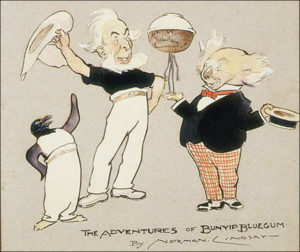Greg Jericho writes in his latest piece “Scott Morrison’s next trick – selling a GST revenue cut to every state bar one” that:
Perhaps the most accurate statement in the Productivity Commission draft report on horizontal fiscal equalisation (HFE) is when it notes that “there is a dearth of public understanding of how HFE works, and this is compounded by the lack of a strong neutral voice in public discussion”.
He’s probably right, but all the graphs and charts in the article don’t really cut through to the heart of the matter. And that is that all this banging on about “zero-sum game”, “winners and losers” and fighting over an equitable share of the GST is predicated on the complete falsehood that tax payments fund government spending. They simply don’t – dollars are not a resource that gets recycled. Every dollar of federal government spending is the birth of a brand new dollar that exists because the government spent it into existence, and every dollar returned to the government through taxation is the death of that dollar. A dollar not currently in the economy does not exist, for all intents and purposes. The federal government cannot run out of dollars, any more than Coles can run out of Fly-Buys, or Qantas can run out of Frequent Flyer points. Now of course, if your economy is overpopulated with dollars, and you have more of them currently “living” (in circulation) than things to buy with them, you get inflation. And that – inflation – is the real limit on government spending.
Money is being issued constantly by the Federal Government. Every pension day, several million bank accounts have their balances increased with a few keystrokes. With every tax return, PAYG paypacket and BAS statement, bank balances get reduced again. (To be clear: this is nothing to do with note-printing. The RBA’s role as the physical printer of currency is not what I’m talking about. There is vastly more money in the economy than there are notes and coins. The decision to physically manifest dollars as paper money is purely a function of demand from banks, when their customers want to convert money as recorded in a bank account to its physical equivalent, for personal commerce.)
It’s crucial to understand that the issuing of money is not inherently inflationary. To assume that you must assume that the size of the economy is fixed, or its productive capacity is maxed out. And clearly neither of those things are true today. As I said previously, inflation occurs when the dollars available outstrip the things you can buy with them. Too much money chasing too few goods. There is no other sane definition.
 There is no reason whatsoever that GST should be a pie the states fight over. To switch metaphors, Federal Government spending is actually more like a magic pudding – you can eat too much, but you cannot run out.
There is no reason whatsoever that GST should be a pie the states fight over. To switch metaphors, Federal Government spending is actually more like a magic pudding – you can eat too much, but you cannot run out.
And this is what makes me so angry about this hypothecation of “GST revenue” as income of the individual states. When you get down to it, what is the role of government? Is it not to ensure the security, health, education and welfare of its citizens? So the idea that we must fund our education and health – the nation’s investment in its own future – from the vagaries of the consumer spending cycle has got to be one of the most idiotic economic own-goals ever kicked. Even by Costello’s standards as a thorough economic charlatan, this is epic stupidity.

